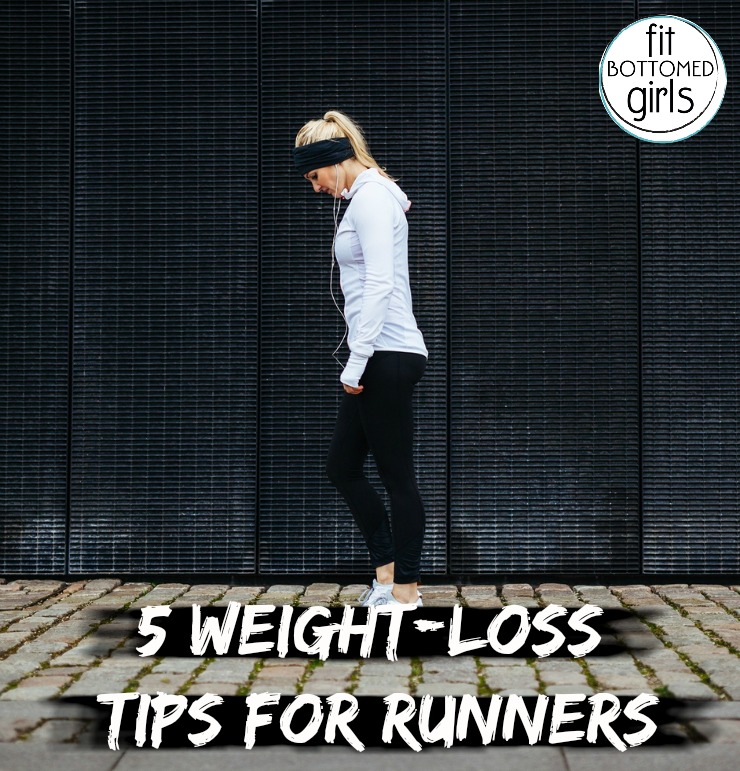Weight-Loss Tips for Runners
 I remember when I ran my marathon back in 2010. I gained about 10 pounds.
I remember when I ran my marathon back in 2010. I gained about 10 pounds.
Yes, you read that right. I gained weight while training to run a freakin’ marathon. And, at least anecdotally, I know that it’s actually a fairly common thing. When you’re putting in that many hours of running, you just get hungry. So hungry. And as we all know, it’s way easier to eat calories than burn ’em. (Plus, the whole calories-in-versus-calories-out thing is way flawed and will drive you bananas.) So how do you lose weight sanely and safely without being starving when you’re running lots or training for a race?
Good question. We reached out to running coach and exercise scientist Greg McMillan for his best weight-loss tips for runners. He just used these methods to lose weight himself and with his clients, so he knows they really do work! (I could have used these before my marathon training years ago … especially no. 1 and no. 5, ha!)
5 Weight-Loss Tips for Runners
1. Satiety is key. In general, proteins and fats satiate longer than carbohydrates so outside of the glycogen window (the first 30 minutes after a hard workout), I focus on healthy proteins and fats. For carbohydrates, I focus mainly on vegetables and low-glycemic carbs. It’s just a matter of eating the foods that contain the least calories yet keep you satiated the longest.
2. Just cutting calories isn’t the end all be all. Cutting calories is a successful way to lose weight, but all calories aren’t created equal. Some foods cause the body to store more fat and make you more hungry, like processed and high glycemic carbs that cause spikes/drops in blood sugar. UCAN SuperStarch is a low glycemic carbohydrate that keeps blood sugar levels steady. I mix it with protein plus healthy fats for a great meal-replacement shake that is lower in calories, but keeps me from feeling hungry. This is a great option on low-carb days.
3. Time your carbs. You’re focused on cutting your calories, but still need to be able to perform in training, which requires some carbs. Focus on quality carbs around your key/long sessions and eat some carbs before and after hard/long sessions, but otherwise reduce them.
4. Being a little hungry is okay. Get used to being a little hungry, but never too hungry or you are likely to overeat. (Editor’s note: we like to follow this handy dandy hunger and fullness chart for mindful eating.)
5. Beware of reward eating. Overeating is a problem in running. A study shows that if left to replace the calories burned during a workout, people will eat two to three times the amount of calories they actually burned. Satiety is especially key immediately after a workout so you don’t overeat later. I ingest a UCAN shake with protein immediately after hard sessions. This simple strategy then allows me to reduce my carbohydrate intake in the remaining meals. Most people find doing so helps them keep their weight under control.
Any others gain weight when training for a race? How about those who lost? Any other tips you’d add? Piggybacking on no. 4, I’d add that letting yourself get too hungry is a recipe for overeating, too. After a long run, if I waited too long to eat after, the only thing I wanted in life was pizza and beer. And lots of it. —Jenn
